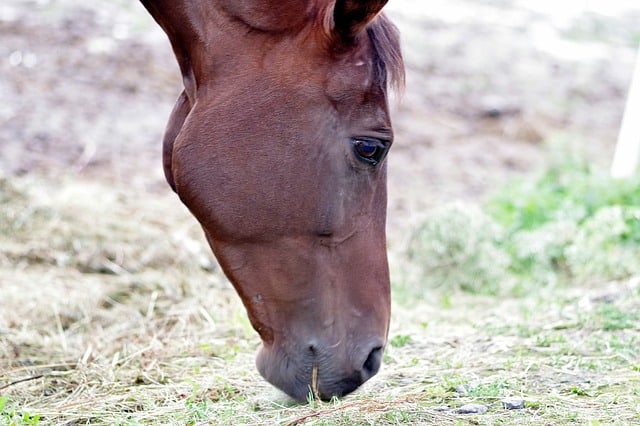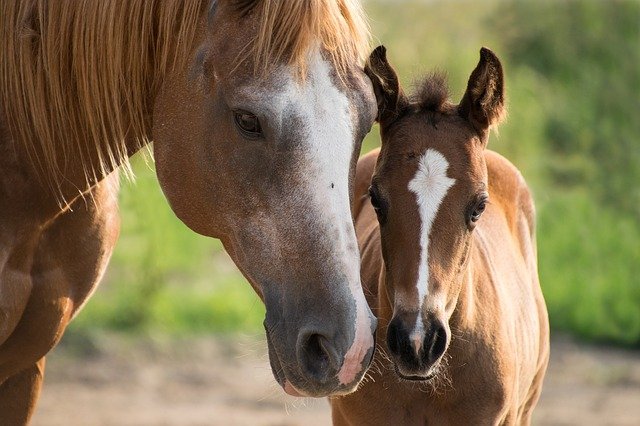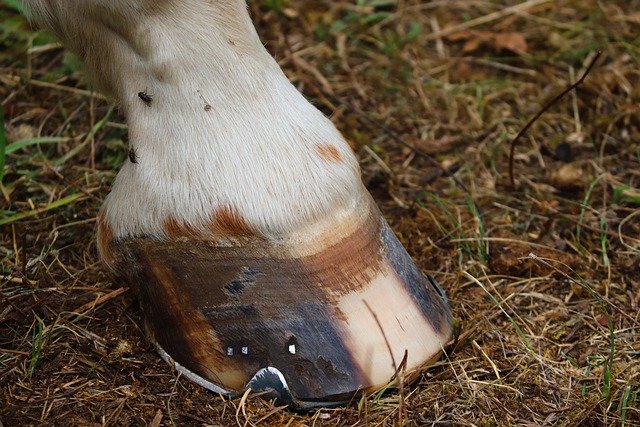As Equestrians we are all so careful nowadays to keep our horses in Tip Top Condition, often buying the best feed and supplements. However, could the colour of your horse’s coat, or their inability to be able to fight off infections be a sign of a Copper Deficiency? This month we explore the signs and symptoms of Copper deficiency in horses and how to correct the problem in the most suitable way.

What is Copper?
Copper (CU) is a trace element, that has many functions within the horses body, from promoting immune response, connective tissue development and repair, along with a healthy functioning Nervous and Circulatory System to name a few.
Copper works by acting with specific enzymes to produce chemical reactions in the horse’s body that are necessary for the overall health of the animal. The link between copper and other trace elements such as Zinc is important as imbalance can lead to a reduction of the absorption of useable copper in the animals system.
The National Research Centre suggests that 550 kg horse requires at the very least 100mg of Copper per day. This amount increases with a horse in work, due to the extra demands on the animal’s body. However, it has been found that a horse of 550kg can take in excess of this amount without any negative effects up to 2,500mg per day.
The Functions of Copper in the Horse’s Body.
Copper & The Nervous System
Many of the Enzymes in the Brain and Central Nervous System of the Horse require Enzymes that need copper to function correctly. Deficiency in copper can therefore lead to impairment in the Nervous System which is the control centre of the horse.
Copper & Iron Metabolism
A prolonged deficiency in Copper can lead to Anaemia, or Iron deficiency. There are several Enzymes which contain Copper that are required to mobilize Iron from the Liver and other stores, to then be utilized in the body at sites where Red Blood Cells are manufactured. Therefore a deficiency in these enzymes can lead to Anaemia in the horse.
Copper & Connective Tissues
One of the primary building blocks of connective tissue in the body is Collagen, and lysyl and amine oxidase are two copper dependent enzymes that are responsible for the correct formation of Collagen. Therefore a horse that is copper deficient could have weakness in their connective tissues and bone development that is why supplementation is particularly important in young stock.

Copper & Hoof Health
The correct balance of both Copper and Zinc is important for the correct make up of Keratin in the horse’s body. Keratin is vital for hoof development and strength, therefore a deficiency in copper may contribute to brittle hooves and other foot problems such as white line disease.

Copper & Coat Colour.
Melanin is the colour pigment of Skin and Hair in the horse, tyrosinace is a copper dependent enzyme that works to produce melanin. When a horse is copper deficient, this therefore can affect the horse’s coat leading to a bleached or faded look, while the quality of the hair can also be brittle.
Copper & Immune Function
Copper is a necessary component of an important antioxidant superoxide dismutase. This Antioxidant works to produce hydrogen peroxide to kill invading bacteria, and therefore assists the horse’s immune cells such as macrophages and neutrophils in the control of bacterial infection in the horse’s body.
Copper & Energy Production
The copper dependent enzyme cytochrome c oxidase is used by the Mitochondria within the animal’s cells in the production of ATP or Adenosine Triphosphate, which is the main energy supply of the cell. Therefore a horse low in copper may appear lethargic and low in energy.
Common Signs Your Horse May Be Copper Deficient
- Fading or Bleaching of the Coat
- A horse that is Lethargic, or tires easily
- Brittle Hooves
- White Line Disease/Seedy Toe
- Weak Tendons or Ligaments or Blood Vessels
- Allergies such as Sweet Itch
- Mud Fever or Rain Scald
- Anaemia
- Prone to infections
- In young horses; Osteochondritis or Osteochondrosis.
Molybdenum & Copper in the Soil
Ireland, Britain, New Zealand and the USA, have been found to have high levels of molybdenum in the soil. This element can prevent the storage of copper in the liver, and therefore may contribute to deficiency in horses and other farm animals. However, research has suggested that molybdenum has less of an impact on copper deficiency in horses than other farm animals.
Cause of Copper Deficiency
A horse kept solely on a forage diet may be low in copper due to low levels available within the feed stuff. Plus if the forage has a high iron content this can further affect the absorption of copper and zinc.
The grass kept horse can also become copper deficient due the reduced availability of the mineral within the soil. The higher the PH of the soil, the less copper is available for uptake by plants.
Supplementation of Copper
Pregnant Mares in the later part of pregnancy require three times the daily amount of copper to ensure the healthy development of the foal. While foals can also be supplemented to support the growth of healthy bones and joints.
Most reputable manufactured feeds that are fed in the correct amounts contain all the requirements that an adult horse requires. However, if the horse is at pasture, or being fed solely on a forage based diet, then they may be copper deficient. If you have noticed any of the symptoms above discuss the matter with your veterinary surgeon who may recommend a blood test to determine if supplementation is required.
This article was originally published in the June 2021 Issue of Irish Sport Horse Magazine.
